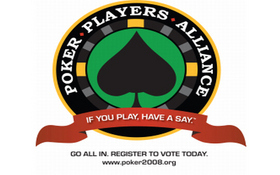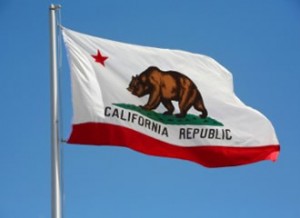Mar 19 2011
Frank teams up with Campbell on new Internet Gambling Bill
written by: Steve Comments: 1
 A longtime advocate of legalizing and regulating the online gaming industry, Congressman Barney Frank (D-MA) has teamed up with his Republican colleague John Campbell (R-CA) to introduce the Internet Gambling Regulation, Consumer Protection, and Enforcement Act.
A longtime advocate of legalizing and regulating the online gaming industry, Congressman Barney Frank (D-MA) has teamed up with his Republican colleague John Campbell (R-CA) to introduce the Internet Gambling Regulation, Consumer Protection, and Enforcement Act.
You may recall that it was Frank’s HR2267 that got quite a bit of press during the last session of Congress after easily passing the House Financial Services Committee, before it was left to die in the House of Representatives; not even being brought to the House floor for a vote. Using the nuts and bolts of HR2267, the new legislation looks almost like a carbon copy of last year’s bill with provisions to prevent underage and problem gamblers from access; sets deposit limits as well as limits on losses; protect consumers from cheating and fraud; prevent money laundering and tax evasion; as well as the capability to investigate potential operators.
Unfortunately, the anti-gambling, Spenser Bacchus (R-AL) is the head of the House Financial Services Committee in the new Republican-led Congress, and it’s unlikely that one of the biggest opponents of gambling will bring the matter up in committee –committee chairs determine which issues are addressed in their committees in Congress.
Mar 9 2011
Poker Players Alliance responds to NJ governor’s veto
written by: Steve Comments: Comments Off
 Former United States Senator and current Poker Players Alliance Chairman Alphonse D’Amato issued a statement regarding the recent veto of the online gambling bill that had passed through the New Jersey Legislature and Senate before being nixed by Governor Chris Christie’s veto pen.
Former United States Senator and current Poker Players Alliance Chairman Alphonse D’Amato issued a statement regarding the recent veto of the online gambling bill that had passed through the New Jersey Legislature and Senate before being nixed by Governor Chris Christie’s veto pen.
In the statement issued on the PPA website D’Amato stated:
“We firmly believe that licensing and regulating online poker is the best and most effective way to protect consumers, protect Americans’ internet freedom and generate much needed revenue… However, the PPA also firmly believes that given the borderless nature of the internet, these interests would be best served by federal legislation that would provide licensing and regulation of interstate poker, as opposed to state-by-state regulation, whereby players in New Jersey could only play with other players in the Garden State.”
It would appear that the PPA is sticking to its original intention of focusing the fight for legalized online poker to the federal level where it would keep the global poker market virtually intact, instead of carving out sections of the country and severely limiting the overall player pool.
The New Jersey bill is still not dead, as the bill’s creator Senator Robert Lesniak plans to rework the bill and send it back to the governor, or even turn it into a ballot referendum in November, allowing New Jersey residents to vote on the measure.
Mar 6 2011
Online poker bill falls in NJ moves forward in Iowa
written by: Steve Comments: Comments Off
 While New Jersey Governor Chris Christie was vetoing a bill that would have seen New Jersey become the first state to legalize and regulate online gambling, Iowa lawmakers were busy advancing an online poker bill of their own, as Senate Study Bill 1165 passed the State Government Committee by a 9-6 tally. The bill is now headed to the Senate Floor for a full vote where if it passes it will then go on to the State House, and hopefully it will receive the signature of Governor Terry Branstadt.
While New Jersey Governor Chris Christie was vetoing a bill that would have seen New Jersey become the first state to legalize and regulate online gambling, Iowa lawmakers were busy advancing an online poker bill of their own, as Senate Study Bill 1165 passed the State Government Committee by a 9-6 tally. The bill is now headed to the Senate Floor for a full vote where if it passes it will then go on to the State House, and hopefully it will receive the signature of Governor Terry Branstadt.
Unlike other measures attempted previously in New Jersey, California, and even on the Federal level, the Iowa bill that was introduced by State Senator Jeff Danielson only applies to online poker, and would also limit the scope of the law to Iowa –meaning the bill would legalize intrastate online poker where only Iowa residents would be permitted to play.
While the numbers are far from precise, an estimated 150,000 Iowans play online poker, and the independent studies have predicted that the state could reap a windfall of some $40 million annually from the measure.
Republican Senator Rick Bertrand is in favor of the bill but not for the typical reason. Bertrand sees the states in a race with the Federal Government to legalize online poker, and wants to make sure his state does not get the short-end of the revenue stick. PokerNewsDaily.com reports Bertrand as stating: “If we don’t make a move now, the Federal Government is going to make a move in the next few years and we’ll lose the revenue… I think it’s forward-thinking.”
Feb 28 2011
California Makes Progress on State Online Poker Bill
written by: James Comments: Comments Off
 Last week, the PVA (Poker Voters of America) announced that they had obtained a new sponsor for their recently proposed legislation, which aims to regulate and legalize real money online poker within the state of California.
Last week, the PVA (Poker Voters of America) announced that they had obtained a new sponsor for their recently proposed legislation, which aims to regulate and legalize real money online poker within the state of California.
Although it initially seemed that State Senator Rod Wright, a blatantly pro-online poker legislator, would champion their cause, Wright has been involved in legal troubles of his own related to voter fraud and perjury.
One spokesman from the PVA said that the new sponsor would be officially announced after they ironed out a few details regarding the bill, which will likely be introduced to the California State Senate in the coming weeks.
 California Republican Congressman John Campbell has teamed up with Massachusetts Democratic Congressman Barney Frank to introduce new bipartisan US poker legislation. The bill features several amendments to Harry Reid’s 2010 poker legislation offering, many of which will be more favorable to US poker players and online poker rooms alike.
California Republican Congressman John Campbell has teamed up with Massachusetts Democratic Congressman Barney Frank to introduce new bipartisan US poker legislation. The bill features several amendments to Harry Reid’s 2010 poker legislation offering, many of which will be more favorable to US poker players and online poker rooms alike.
Frank and Campbell are members of the House Financial Services Committee. Frank initially proposed the bill, and Campbell made suggested amendments that allowed the bill to move past the committee phase in the most recent session of Congress.
According to analysis performed by the Poker Player’s Alliance, the bill (entitled HR 2267) features significant improvements over Harry Reid’s proposed poker bill which ultimately failed during December’s lame-duck session.
First, the new bill would eliminate Reid’s proposed 15-month blackout period, which would have allowed ample time for prospective US online poker rooms to obtain proper licensing while simultaneously blocking all US citizens from playing real money online poker, something that many feared would cannibalize the players bases of the biggest online card rooms.




1 Comment - Click Here to Speak Up